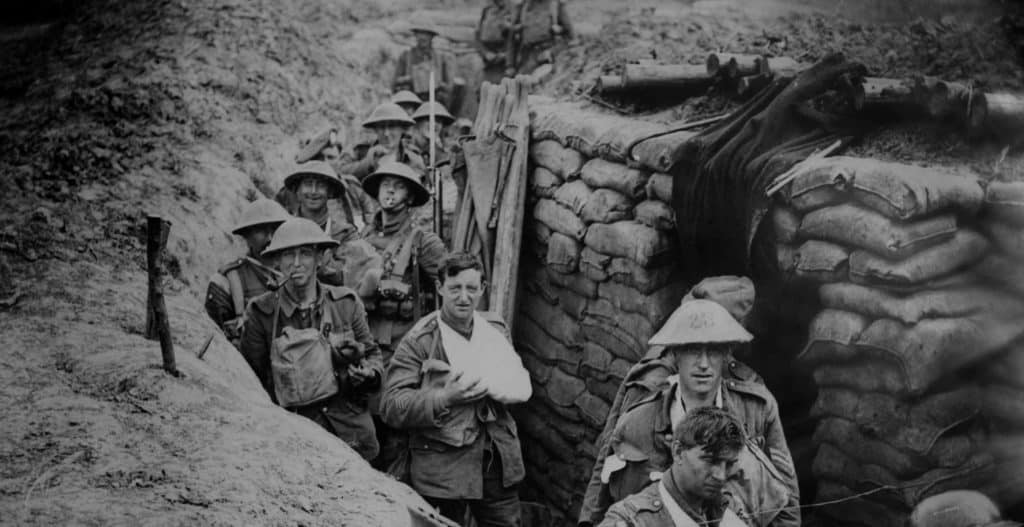War in Ukraine and the growing geo-political rivalry between China and the United States, which is tantamount to a new cold war between the two powers, are illustrative of the effect of imperialism on the world today. Finn McKenna reviews the Marxist understanding of imperialism as an outgrowth of capitalist development.
Defenders of capitalism argue that empires are a phenomena of a by-gone era; that imperialism was brought to an end in the second half of the 20th century. This, they insist (particularly historians of the de-colonisation of Britain’s former empire), occurred with the natural, basically peaceful, progression of the system, when national independence was granted to former colonies. They thus ignore both the brutal repression meted out to national liberation struggles, particularly in the post-war period, and the violence inherent to colonialism.
In countries such as Algeria, Vietnam, India, Angola and Mozambique, the heroic revolutionary struggle of the colonial peoples brought to an end, in some cases centuries of, direct rule by European imperialists over large sections of Africa and Asia. This resistance was met with brutality, torture and massacres – all of which characterised European rule from the onset.
Today, this epoch of colonial rule and the repulsive racist ideology that it spawned, has become increasingly detested by large swathes of working-class and young people. During the Black Lives Matter upsurge in the Summer of 2020, the statues of many of the architects of colonial rule, along with the profiteers of the slave trade, were rightfully toppled. Among them were those of King Leopold II of Belgium who personally ‘owned’ what is today the Democratic Republic of Congo (DRC) and personified the horrors of European colonialism in Africa. Over the course of 20 years from 1890 to 1919, Belgian imperialism was responsible for the murder of an estimated ten million Congolese people and the mutilation of many others, pillaging enormous wealth from its natural resources and its rubber industry built on slavery.
This anti-colonial consciousness speaks to a wider progressive outlook about oppression and its links to capitalism today. Unsurprisingly, it is not a viewpoint shared by the representatives of the ruling classes of different hues. In 2005, then future British Prime Minister, Gordon Brown opined that, “The days of Britain having to apologise for its colonial history are over”. (1) More recently, the Tory Education Secretary, Nadhim Zahawi, argued that school children in Britain should be taught about the “positive impacts of the British Empire”. (2) A cursory glance at this history, not least in Ireland, will tell of a different story – assuming famine, plunder, massacres and the fermenting of sectarian division are not considered “positive impacts”, ones which still scar these societies today.
Global capitalism and imperialism
The defence of imperial history is not simply about sanitising or whitewashing past crimes. It speaks to the fact that imperialism is not an episode in capitalism’s history, confined to the previous two centuries, as the brutalised populations of Iraq and Afghanistan can attest in the case of US imperialism, likewise the people of Ukraine in the case of Russian imperialism.
We live in a world dominated by imperialist powers. The largest of whom, the United States, has 750 military bases in over 80 countries – an informal imperial presence used to maintain its economic domination of the world, which is now being challenged by the rise of Chinese imperialism.(3)
Occasionally, this relationship between economic dominance and military / geo-political might, which lies at the heart of imperialism, is acknowledged by the mouthpieces of the system. For example, the prominent liberal journalist Thomas Friedman wrote in March 1999, at the height of the US empire’s power:
‘…the hidden hand of the market will never work without a hidden fist…. The hidden fist that keeps the world safe for Silicon Valley’s tech-nologies is called the United States Army, Air Force, Navy and Marine Corps. (4)
For Marxists, imperialism is a systemic outgrowth of global capitalism and goes beyond military occupations and direct colonisation, or the bullying of weaker states by stronger ones. It is a system that stems from the drive of a handful of capitalist powers, in the form of big corporations, financial institutions and the states that defend their rule, to gain supremacy in the world of market competition, through the exploitation and domination of economies — the natural, industrial and human resources — of underdeveloped countries.
The exploitative relationship between developed and underdeveloped parts of the world reflects the nature of capitalist development, which happens in an uneven but combined manner. The system not only creates inequality between classes, it does so between nation and regions as well.
Enforced inequality
The notion that countries of the Global South will ever develop to the economic level of the more advanced capitalist countries, such as those in Europe and the United States, is a fallacy. The economic power of the latter countries were built precisely on the underdevelopment of those in Africa, Latin America and much of Asia — this is the only way that powerful capitalist states were able to emerge historically. This point is exemplified by the experience of colonial rule in India. At the turn of the 18th century its share of global GDP was 22.6%, while Europe’s stood at 23.3%. By 1890, at the peak of imperialist expansion, these figures stood at 11% and 40.3% respectively. (5)
In his work Late Victorian Holocausts, the Marxist historian and writer Mike Davis charts the history of the famines and droughts that engulfed India and China in the period 1870 to 1914, when colonial rule expanded in Africa and Asia, resulting in the deaths of an estimated 30-50 million people. Colonial plunder of these regions was a crucial factor in creating these catastrophes through the theft of food reserves and destruction of its agricultural systems. Davis demolishes the myth that colonialism brought progress to places like India. Quite the opposite, in fact, as demonstrated during the famine in 1876:
“The newly constructed railroads, lauded as institutional safeguards against famine, were instead used by merchants to ship grain inventories from outlying drought-stricken districts to central depots for hoarding…Likewise the telegraph ensured that price hikes were coordinated in a thousand towns at once, regardless of local supply trends” (6)
Imperialism was a disaster for the peoples of the colonial world, and remains so for the peoples of the neo-colonial world today. The exploitation and oppression that was an integral part of imperialist rule left a legacy of economic underdevelopment, ethnic divisions and the impoverishment of billions of people.
Ruthless competition
Imperialism is a product of the capitalism’s ruthlessness, its barbarity and its deeply competitive nature, as Rosa Luxemburg pointed out:
“The essence of imperialism consists precisely in the expansion of capital from the old capitalist countries into new regions and the competitive economic and political struggle among [imperialist countries] for those new areas.” (7)
In essence, the drive for profit on the part of big business, and the necessity to expand beyond their national borders, results in the drive for geo-political and military domination by the states in which they are based. This was the case with those in Germany and Britain at the turn of the 20th century, who then constituted the main imperialist powers, and it is true of the United States and China today. Imperialism has over the course of 100 years changed in form, but not in content.
Rosa Luxemburg was one of the first Marxists to theorise the development of imperialism in The Accumulation of Capital in 1913. This was developed by the Russian revolutionaries Vladimir Lenin and Nikolai Bukharin during the First World War in their respective works Imperialism: the Highest Stage of Capitalism (1916) and Imperialism and the World Economy (1917). For them, this marked a new period of capitalist development which was crucial to understanding the nature of colonialism in the latter part of the 19th century and the material basis for the outbreak of the world war.
19th century turning point
In 1876, 10% of the land mass of the African continent was under the rule of European states; by 1900 the figure was 90%. Over the course of a quarter century, France, Britain, Italy, Germany, Portugal and Belgium carved up the continent to exploit its natural resources and create new markets for their capital and commodities. The rights of its peoples never came into the equation.
The straight lines on maps that constitute the borders between different African states are a real scar of this policy, one that was formalised at the Congress of Berlin in 1884-1885 at a meeting of Europe’s most powerful capitalist states under the auspices of Germany’s premier, Otto Von Bismarck. A similar carve up of the Middle East between British and French imperialism took place in 1916, this time in secret, with the Sykes-Picot Treaty. Again, the arbitrary nature of this region’s borders is testament to the division of the colonial spoils by their former imperialist rulers.
A new phase of capitalism
For much of the 19th century British imperialism was the largely unchallenged and hegemonic economic and military power. With its advanced industry it was the proverbial “workshop of the world”, and it had established an empire whose tentacles reached across the globe. This supremacy ensured the establishment of a world capitalist order based on free competition and free trade. However, new factors would conspire to bring this period of capitalist development to an end.
By the 1860s onwards, British imperialism’s dominance was being challenged by the emergence of two rival powers, Germany and the United States. The former was successfully unified into one nation state in 1871 and the latter’s capitalist class had emerged decisively strengthened from the US civil war in 1865. Neither country’s development was to mimic the stages of British capitalism’s pioneering development. Lagging behind Britain, German and US capitalism used the latest technology and business practices to grow their economies, allowing them to catch up and eventually outstrip British capitalism. Leon Trotsky, writing in 1930, explained how:
“The privilege of historic backwardness – and such a privilege exists – permits, or rather compels, the adoption of whatever is ready in advance of any specified date, skipping a whole series of intermediate stages…The fact that Germany and the United States have now economically outstripped England was made possible by the very backwardness of their capitalist development.” (8)
From 1870 onwards capitalism entered a new period of what is now referred to as the ‘Second Industrial Revolution’, a period of globalisation and economic expansion, notwithstanding the cyclical crises of boom and slump that also featured. There was a notable development of the means of communication via railway, telegraph, and telephone, thus facilitating a greater integration of the world economy, along with other new scientific and technological developments such as those in chemicals, electrification and automotives. Another feature of capitalist economies in this period was the growing role of the state, notably in Germany, in directing the economy, with greater levels of state ownership.
Monopolisation
Linked to the above was the greater trend towards monopolisation of industry and banking. Economic expansion and technological innovation were combined with greater centralisation and concentration of capital, with a smaller number of firms exercising control over vast swathes of the economy. The emergence of what Lenin termed “monopoly capitalism” took different forms in different countries. US capitalism saw the emergence of trust companies, which took ownership and control over entire sectors, exemplified by the infamous business magnate John D Rockeller’s United Oil Company, which had control over North America’s oil industry. Rockefeller emerged as a key figure of capitalist industry in the latter part of the 19th century alongside others such as JP Morgan and Andrew Carnegie
In Germany, the development of cartels in different sectors of the economy also played a crucial role in this process of monopolisation of capital. Lenin described how:
“Cartels come to an agreement on the terms of sale, dates of payment, etc. They divide the markets among themselves. They fix the quantity of goods to be produced. They fix prices. They divide the profits among the various enterprises, etc.” (9)
The scale of concentration meant that by 1907 in Germany 1% of the large-scale enterprises accounted for 40% of the total industrial workforce. In the US in 1909, 1% of enterprises accounted for 30% of the workforce and produced 48% of its total industrial production. Bukharin described how this level of concentration could be seen globally:
“…out of 500 billion francs invested in the industrial enterprises of all the countries of the world, as 255 billion, i.e., almost one‑half, aye invested in production organised in cartels and trusts. (This capital is distributed in the various countries as follows: United States, 200 billion francs; Germany, 50 billion francs; France, 30 billion francs; Austria‑Hungary, 25 billion francs, etc.‑all these figures being estimated below the actual ones.” (10)
The monopolisation of industry emerged from crises and the inherent necessity to crush rival capitalist firms, to capture and hold the largest share of the market. The winners could centralise and concentrate even more capital. Such monopolisation can be seen clearly today in the tech industry with the likes of Google, Facebook, Amazon, Apple and Netflix. While sections of the capitalist class and its representatives may bemoan this development, and argue it contradicts the idea of a free market, it is, unfortunately for them, the very real logic of their own system.
The growth of monopolies does not, however, remove competition — or result in a more rational and planned system, as might seem possible in theory — it merely results in competition becoming more intense between the biggest capitalist firms and the states that defend their interests. This can be seen in the battles between the US and China and their respective tech companies, for instance in the scramble over 5G technology.
Finance capital
The monopolisation of capital within the banking sector was to fundamentally transform its role in this same period. This had been analysed by the socialist Rudolph Hilferding in his book Finance Capital, in which he described how:
“the bank is compelled to place an ever growing part of its capital in industry. In this way the bank becomes to an ever increasing degree an industrial capitalist. Bank capital, i.e., capital in money form, which has thus been in reality transformed into industrial capital, I call finance capital.” (11)
Lenin had referred to the traditional role of banks as being that of “modest middleman”, meaning that they acted as mere intermediaries in the financial transactions of different individuals and industrial groupings. (12) Now, finance capital began to exercise greater and greater control over the economy. Bukharin summarised this new role:
“Thus by means of various forms of credit, by owning stocks and bonds, and by directly promoting enterprises, banking capital appears in the role of an organiser of industry. This organisation of the combined production of a whole country is the stronger, the greater; on the one hand, the concentration of industry, on the other, the concentration of banking.” (13)
They had become in his words “the monopoly of monopoly making”. There was a significant crossover between those who ran the banks and the major industries, signifying how the two had merged. In Germany in 1903, six banks held 751 seats on the supervising councils of industrial stock companies and, conversely, 51 representatives of industry on the supervising councils of banks.
Again this commanding role of the banks and their ability to control investment in various industries can be seen today. For instance, since 2015 over $4.6 trillion dollars have been invested by the world’s 60 largest banks in the fossil fuel industry.
Finance capital was to play an important role in the process of colonisation via the method of “debt trap diplomacy”, a “rentier capitalism” that spoke to the increasingly parasitic nature of the system. Egypt was one of its victims. In the period from 1863 to 1876, its debt of rose from £3 million to £68.5 million, and the servicing of this debt crippled its finances forcing it to give up its control of the Suez Canal, still today a vital shipping lane, which at the time was crucial for Britain’s trade with India.(14) British imperialism eventually seized control of Egypt in 1882 after a national uprising against its increasing domination. Rosa Luxemburg described the impact of this new colonial rule on the lives of its populace:
“The greater the debt to European capital became, the more had to be extorted from the peasants… All over Upper Egypt people were leaving the villages, demolished their dwellings and no longer tilled their land – only to avoid payment of taxes…North of Siut, 10,000 fellaheen are said to have starved in 1879 because they could no longer raise the irrigation tax for their fields and had killed their cattle to avoid paying tax on it.” (15)
Expropriating natural resources
The colonies of Africa and Asia became the new spheres of exploitation for the capitalist monopolies and finance houses of the industrialised imperialist countries. The economies of the colonies would be geared towards furnishing the advanced capitalist countries with the raw materials to produce their manufactured goods. Bukharin explained how the disparities within capitalist economies, particularly in the disparity between industry and agriculture, meant that big business needed:
“…greater and greater volumes of raw materials, namely wood (paper industry, building trades, cabinet making, railroad construction, etc.), animal products (hides, wool, bristles, horsehair, furs, bones, intestines, animal fats of all sorts, meat as material for the manufacturing of foods, etc.), raw materials for the textile industry (cotton, flax, hemp, etc.), finally such commodities as rubber, which plays a colossal part in all phases of industrial life, etc.” (16)
Rubber, oil, copper, cotton and different foodstuffs were all ruthlessly extracted by the imperialist powers from the nations of Africa, Asia and Latin America.
This was combined with the expropriation of vast amounts of land in Africa by European settlers to exploit. In countries such as South Africa, Kenya and Zimbabwe (then called Southern Rhodesia) the black African population were thrown off their land and segregated into “reservations” where the land was not conducive to farming. They were used as a source of cheap labour for these large settler farmers and capitalist companies. In Kenya, white British settlers were given 999-year leases on some of the most arable farming land. (17)
The late 19th century saw the beginning of the criminal exploitation of Africa’s land, resources and people by imperialist powers that continues to this day, with Chinese and Russian imperialism entering the fray in the last two decades.
War and militarisation
The greater integration of the world economy in the period 1870 to 1914, the first era of globalisation, coincided with the intensification of imperialist rivalry. The competition to stake claims on the riches of the non-capitalist world led inexorably to the greater militarisation. Major increases in arms expenditure and the build-up of huge standing armies followed, which was necessitated in any case for colonial conquest. As did geo-political sabre rattling and the development of proxy wars such as the Balkan Wars of 1912-1913, and eventually to the outbreak of the First World War itself. Economic crisis and stagnation meant that the world that had been divided between imperialist powers now had to be redivided in favour of the stronger imperialist bloc, and war was the only means to achieve this.
To what extent does inter-imperialist rivalry, and geo-political and military tensions that go with it, exist today? For much of the period following the Second World War, US imperialism’s superiority remained largely unchallenged by other capitalist powers (although it did face a formidable counter-weight from the Soviet Union whose economy was based on nationalised planning), having emerged triumphant from the War. Its economic rivals in Europe and Japan remained basically subservient to it militarily and geo-politically. This essentially remains the case today, as seen in the domination of NATO by the US and the fact that it possesses military bases and even nuclear weaponry in many European countries. This has led some on the left to conclude that with the hegemony of US imperialism, the epoch of geo-political and military rivalry is over. This was the view of Leo Panitch and Sam Gindin who, writing in 2006, argued that the Marxist left needed to:
“[understand] how the American state developed the capacity to eventually incorporate its capitalist rivals, and oversee and police ‘globalisation’ – i.e. the spread of capitalist social relations to every corner of the world.” (18)
However, in the last couple of decades US imperialism has faced a considerable challenge from the rise of Chinese imperialism, both in terms of its economy, which now produces greater high-value goods, and through its military build-up (still way behind that of the US). It is not a coincidence that the rivalry between these capitalist powers has intensified in the last decade, against the backdrop of economic, political and social crises faced by both US and world capitalism. This is the material basis for the emergence of a new cold war and a reversal of the process of globalisation. Lenin wrote that “politics is concentrated economics”. This is true of geo-politics as well. The tensions between China and the US over the fate of Taiwan, for example, are a concentrated expression of the broader economic rivalry between these two capitalist powers.
This intensified rivalry, which is seeing the world increasingly divided into two main blocs, comes at a time when there is an urgent necessity for co-operation between states given the threats faced by humanity, in the form of climate catastrophe but also the potential emergence of new pandemics. Ironically, these challenges will only deepen this rivalry, as illustrated by the ‘vaccine nationalism’ displayed during the Covid crisis.
Capitalist imperialist rule will lead to more wars (proxy or otherwise), environmental destruction and the immiseration of the mass of humanity. It poses in the starkest terms the urgent need for revolutionary socialist change – the overthrow of our capitalist rulers who are leading us to extinction. In place of their system of competition and exploitation, the working-class and oppressed majority – through new democratic institutions brought about through common struggle – must build a system based on cooperation, solidarity and planning of the world’s resources to meet the needs of all people and the planet.
- 16 March 2005, “An imperial history lesson for Mr Brown”, Independent, www.independent.co.uk
- 28 March 2022, “Teach pupils the benefits of the British Empire, says Nadhim Zahawi”, The Times, https://www.thetimes.co.uk/
- Mohammed Hussein and Mohammed Haddad,10 September 2021, “Infographic: US military presence around the world”, Al Jazeera, www.aljazeera.com
- Quoted in Leo Panitch and Sam Gindin, 2006, “Global Capitalism And American Empire”, Socialist Register, www.socialistregister
- Tariq Ali, 2022, Winston Churchill: His Times. His Crimes, p. 266
- Mike Davis,2001, Late Victorian Holocausts, p.31
- Quoted in The Complete Works of Rosa Luxemburg, Volume II: Economic Writings 2, Edited by Peter Hudis and Paul Le Blanc (2015), p.362-363
- Leon Trotsky, 1932, History of the Russian Revolution, p.27
- VI Lenin, 1916, Imperialism: The Highest Stage of Capitalism, p.38
- Nikolai Bukharin, 1917, Imperialism and the World Economy, p.71
- Ibid, p.71
- Neil Harding, 1983, Lenin’s Political Thought, Volume 2, p,50
- Bukharin, p.71
- Eric Toussaint, 2005, “Debt as an instrument of the colonial conquest of Egypt”, www.cadtm.org
- Quoted in Hadas Thier, 2020, A Peoples Guide to Capitalism,p. 221
- Bukharin, p.90
- Editorial Team, 28 June 2020, Black History Month, “The Colonisation of Kenya”, www.blackhistorymonth.org.uk
- Leo Panitch and Sam Gindin, 2006, “Global Capitalism And American Empire”, Socialist Register, www.socialistregister












